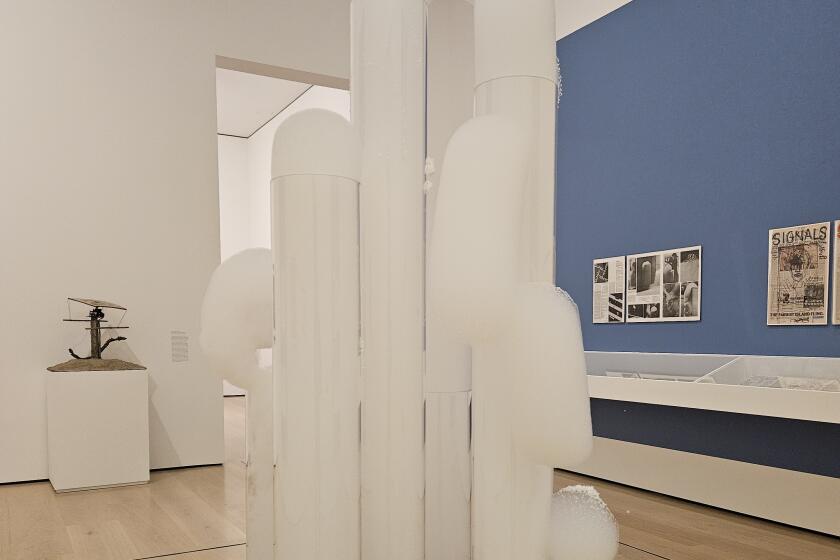‘Latiné’ vs. ‘Latinx’: How a newly crowned Tony-winning playwright cast his vote

When playwright Matthew López accepted the prize for best play at the 74th Tony Awards, he became the first Latino in history to win the top drama category. He also became the first best-play winner to use the de-gendering term “Latiné” to refer to people of Latin American descent.
“This is the 74th Tony Awards, and yet I am only the first Latiné writer to win in this category,” López said after “The Inheritance” nabbed four Tonys. “I say that not to elicit your applause, but to highlight the fact that the Latiné community is underrepresented in American theater, and most especially on Broadway.”
The word “Latiné” may have been unfamiliar to some viewers, particularly those who may be used to hearing — and using — the more popular but not universally loved term “Latinx.”
“Latinx” began appearing online in the early 2000s and has gained currency because it eliminates the Spanish language’s gendered word ending (Latino for men and Latina for women). But as Daniel Hernandez pointed out in a 2017 Times op-ed, “The term is used mostly by an educated minority, largely in the U.S. And although there is little to no research yet on its specific origins, ‘Latinx’ is definitely not used by working-class immigrant adults, who probably have no idea that some of us brown folks are debating this at all.”
Others have argued that ending nouns and adjectives with an X instead of an O or A makes the language practically unpronounceable. In his piece, Hernandez called himself Latin.
On Sunday night at the Tony Awards, against a backdrop of a culture increasingly attuned to trans and nonbinary people, López opted for “Latiné,” a different approach to unify Latin American heritage under an inclusive term that gives no special favor to gender.
“The Inheritance,” which examines the lives of gay men in the generation after the AIDS epidemic, opened in London in 2018 and moved to Broadway in 2019. Times theater critic Charles McNulty called it López’s “magnum opus.”
While some on social media decried the selection of “The Inheritance” over Jeremy O. Harris’ “Slave Play” as yet another example of work centered on white characters instead of people of color, others defended López and argued that a Latino writer need not be required to focus exclusively on Latino characters.
In his acceptance speech, López asked theater fans to give more Latiné theater makers a chance to tell their stories.
“We have so many stories to tell,” he said. “They are inside of us, aching to come out.”
More to Read
The biggest entertainment stories
Get our big stories about Hollywood, film, television, music, arts, culture and more right in your inbox as soon as they publish.
You may occasionally receive promotional content from the Los Angeles Times.








